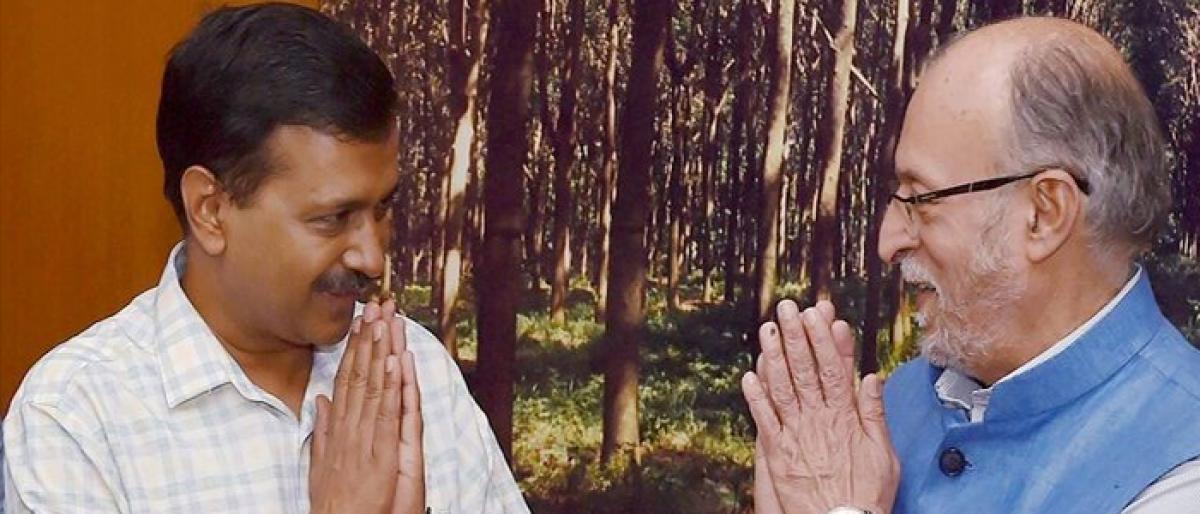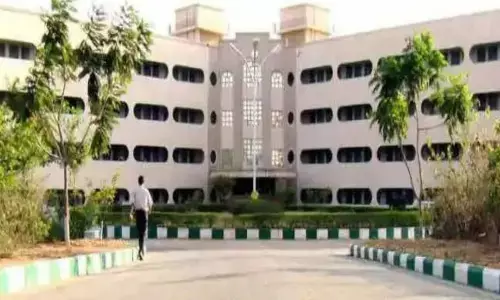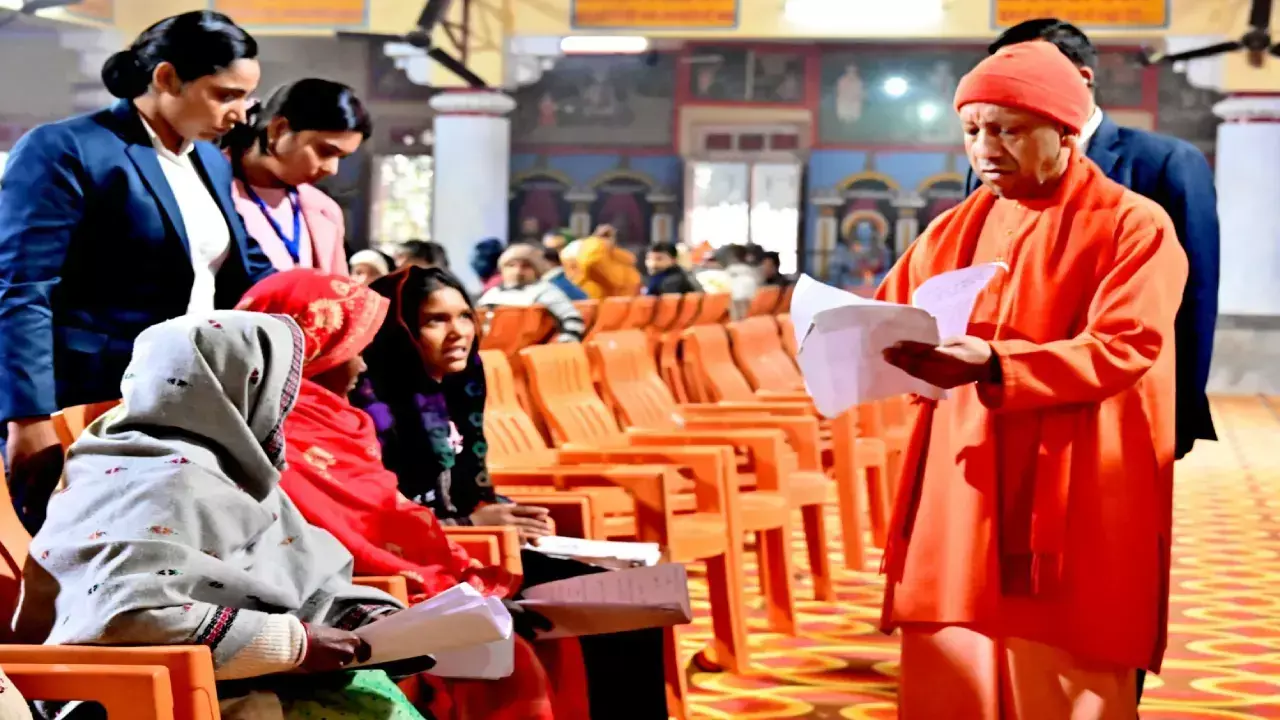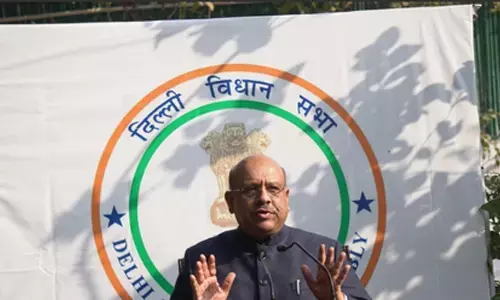Working at cross-purposes

The recent verdict of the Supreme Court, in the matter relating to the distribution of powers and functions between the Lieutenant Governor LG and the Chief Minister CM of Delhi, has set at rest many a longpending controversy relating to this issue Significantly, the judgement made it clear that Delhi is not, in fact, a fullfledged state as envisaged in the Constitution of India
The recent verdict of the Supreme Court, in the matter relating to the distribution of powers and functions between the Lieutenant Governor (LG) and the Chief Minister (CM) of Delhi, has set at rest many a long-pending controversy relating to this issue. Significantly, the judgement made it clear that Delhi is not, in fact, a full-fledged state as envisaged in the Constitution of India.
The Court also provided clarity in regard to the responsibilities and accountability attached to the two offices, stating clearly that those elected by the people should enjoy authority needed and, therefore, need to be empowered, to perform their duties effectively and capably. While making it clear that the Government of Delhi is duty-bound to keep the LG informed about the manner in which it exercises its powers, the Court made it abundantly clear that the office of the LG is by no means supreme.
In recent times one has noticed a marked tendency amongst the general public to view political leaders with consistently decreasing respect and distrust, if not outright suspicion. It can hardly be gainsaid that the reason for this feeling is the manner in which the leaders have been discharging their functions, and their general character and conduct. In the days soon after Independence many of the leaders in the states were not highly qualified academically.
The main reason for that was that they had had to leave their studies in order to join the freedom movement. They, however, possessed earthy common sense, and a working understanding of most issues pertaining to their work in abundant measure. Some of them even spoke English quite fluently. And, on account of their connections with the cadres of their parties at the grassroots level, they were able to stand their own in their interaction with officials, who were posted with up-to-date information and knowledge about administrative matters. As a result, the officialdom also treated the leadership with respect and regard.
As time passed, however, the situation changed and a new generation of leadership emerged which, though academically more qualified, owed their position more to the money they were able to spend in elections, the gift of the gab and the support of groups based on caste, region and community. In terms of intellectual caliber and administrative acumen, or even the depth of knowledge of the problems of the people in general, their faculties remained shallow and, consequently, they began to command less and less respect from the society in general.
Over time, the feeling has gathered ground that any programme or scheme that is conceived by political leaders is entirely on account of the desire to benefit their party workers, or to gain popularity among the voters, and is not driven by the urge to serve the long-term interests of the society. Gradually, the public began to feel that the permanent administration was much more reliable than the transient political leader. Frequent postponement of elections to the local bodies also strengthened this feeling, as the administration had a more continuous presence. All in all, a definite trust deficit has come to stay in regard to the people’s attachment to the concepts that are fundamental to democratic governance.
The scams and frauds that have been unearthed from time to time have not helped much either. The inability of the governments to move against those responsible, the delay in investigations and other obstacles created by the leaders in the way of agencies entrusted with the responsibility of identifying and punishing the guilty, largely on account of political considerations, have all contributed to further erosion of the faith of the public in the elected representatives.
The situation has been further exacerbated by the fact that, from time to time, courts are approached, and they appointed commissions or committees to submit time-bound reports and sometimes even undertook supervision of the proceedings. It can be argued that, in the process, though in the public interest, the judiciary is really occupying space which legitimately belongs to the legislature and executive and undermining their authority.
It is no exaggeration to state that none of these is a welcome development. No matter how honest and able civil servants are, it must be remembered that the administration is there to aid and assist the elected representatives. Officials cannot be entrusted with authority independently of the people’s representatives, as they are not accountable to the public. It is, however, the civil servants’ duty to sensitise the political leaders about what is proper or otherwise in administration and, if necessary, point out to the leaders the pitfalls in crossing the lines of propriety in their actions.
Such advice is often not palatable to the “action at any cost” type of politicians who regard the bureaucrats as an impediment to their plans and would like to see orders being carried out even at the cost of bending, if not breaking, the rules.
It needs to be remembered that officers and leaders are both public servants, though entrusted with different nuances of responsibility and, therefore, authority or power. One has a limited tenure, and the need to perform within the time available, while the other is required to ensure that the all-important element of continuity is brought to bear up on the administrative matters.
The politician-civil servant relationship is nothing new either in democracy or to the Indian scene. The fund of wisdom, experience and knowledge that formed the contents of the book “Yes Minister” could just as easily have been borrowed from the Indian experience. While bureaucrats are busy scheming to get political leaders under their control, the ministers would like to believe that they are wise to the tricks of the old foxes they are dealing with, and would like to be one up on them. This ‘Tom and Jerry’ kind of game is quite common in many democratic systems. And, paradoxically enough, sometimes cat turns to mouse and vice versa! What is more, when faced by a common threat, the bureaucrat and the politician are also quite capable of joining hands and protecting themselves against the external enemy.
All these potentially complex issues were taken into account when shape was given to the concept of an All India Service at the time of the framing of the Constitution. This columnist had, in an earlier piece, occasion to dwell at some length on this issue. The crux of the issue is that the civil servants as well as the political leaders need to treat their own spheres of influence and functions with maturity and a sense of balance. Everyone has a role to play in the complex task of governance. Only, the lines of demarcation need to be recognised and respected.
Coming back to the Delhi governments issue, the Supreme Court made it quite clear that the LG, being an administrator, has no independent decision-making authority, also adding that he should facilitate, and not obstruct, and that he is bound by the aid and advice of the Council of Ministers of Delhi state. For abundant measure, the Court further stated that the LG has no independent power to overrule the decisions of the state cabinet.
The Aam Aadmi Party (AAP) government may well describe the verdict as a victory for the party. But they need to note that the Supreme Court warned that the head of the government cannot afford to be an anarchist, probably referring to his quarrels with his staff. Can anyone quarrel with his own tools? Belittling one’s own staff does not help him serve the public any better.
The point at issue is whether it was necessary for the executive agencies, namely the LG on one hand and the CM and his cabinet on the other, to allow the matter to go to a Court of Law, and force a situation where a legal verdict became necessary to clarify situation which ought have been settled within the four walls of the Delhi government’s secretariat. To this extent, the Central as well as the Delhi governments need to introspect and bring appropriate changes to their approach towards issues of this nature.
















